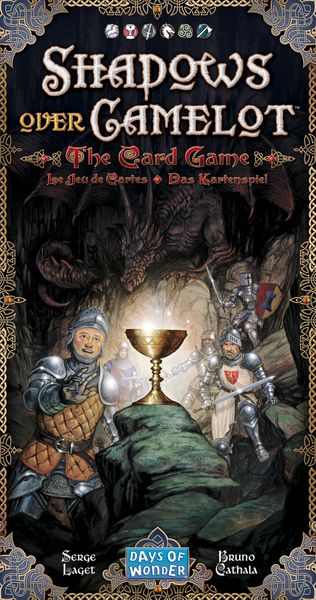Shadows over Camelot: The Card Game (2012) Board Game
Shadows over Camelot: The Card Game is a standalone game based on the popular board game Shadows over Camelot. It was released in 2012 by Days of Wonder and designed by Bruno Cathala and Serge Laget. The game is set in the legendary realm of King Arthur and his Knights of the Round Table, where players work together to complete quests and defend Camelot from threats.
Game Components of Shadows over Camelot: The Card Game
How To Setup Shadows over Camelot: The Card Game
Players start by receiving loyalty cards, which may secretly indicate a traitor among them. Each player is dealt a set of cards, and the rumor pile is shuffled. The game board or playing area is set up to display the quests and the rumor cards.
Gameplay Mechanics and Game Objective
Player Experience
Playing **Shadows over Camelot: The Card Game** involves a mix of cooperation and suspicion. Players must work together to complete quests while keeping an eye out for potential traitors. The game’s memory element adds a layer of complexity, as players need to track changing quest values and remember which cards have been played. The artwork and theme, though not deeply immersive, enhance the game’s aesthetic appeal.
Pros
Cons
Personal Thoughts on Shadows over Camelot: The Card Game
**Shadows over Camelot: The Card Game** is ideal for fans of cooperative games and those who enjoy social deduction elements. It’s a great choice for groups looking for a quick, engaging game that requires strategic thinking and memory skills. However, it may not be the best fit for those who prefer games with simpler rules or less emphasis on memory and deduction. Despite some usability issues, the game’s unique blend of cooperation and betrayal makes it a compelling addition to any game collection.
We are supported by our audience. When you purchase through links on our site, we may earn an affiliate commission, at no extra cost for you. Learn more.

